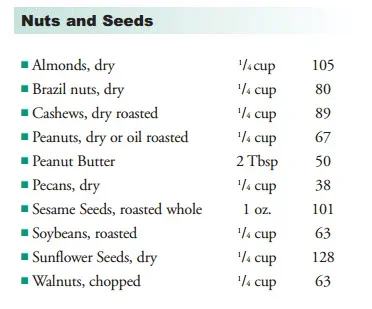Nelson Vergel
Founder, ExcelMale.com
Rotter I, Kosik-Bogacka D, Dolegowska B, Safranow K, Karakiewicz B, Laszczynska M.
Relationship between serum magnesium concentration and metabolic and hormonal disorders in middle-aged and older men. Magnes Res 2015;28(3):99-107. http://www.ncbi.nlm.nih.gov/pubmed/26507751
The aim of this study was to determine the relationship between serum magnesium (Mg) concentrations in middle-aged and older men, and the occurrence of selected metabolic and hormonal disorders.
The study involved a total of 313 men aged 50-75 years, and who underwent standard anthropometric measurements. Also determined were blood serum Mg, lipid parameters - total cholesterol (TCh), high-density lipoprotein (HDL), low-density lipoprotein (LDL), triglyceride (TG) and carbohydrate metabolism parameters - glucose, insulin (I).
In men with a normal total testosterone (TT) concentration, serum Mg was significantly higher compared to patients with a total testosterone deficiency.
The subjects with metabolic syndrome had lower serum Mg compared to patients without metabolic syndrome. Serum Mg concentration in type 2 diabetes mellitus was lower compared to men without diabetes. In patients with arterial hypertension, serum Mg concentration was lower than in patients without hypertension.
Statistically significant negative correlations were found for the relationships between Mg concentration and body mass index, waist-to-hip ratio, abdominal circumference, arterial blood pressure.
Statistically significant, positive correlations were found for the relationships between Mg concentration and TT, TCh, LDL concentrations.
The lower serum Mg level may be conducive to the development of total testosterone deficiency, arterial hypertension, diabetes, and therefore metabolic syndrome.
Relationship between serum magnesium concentration and metabolic and hormonal disorders in middle-aged and older men. Magnes Res 2015;28(3):99-107. http://www.ncbi.nlm.nih.gov/pubmed/26507751
The aim of this study was to determine the relationship between serum magnesium (Mg) concentrations in middle-aged and older men, and the occurrence of selected metabolic and hormonal disorders.
The study involved a total of 313 men aged 50-75 years, and who underwent standard anthropometric measurements. Also determined were blood serum Mg, lipid parameters - total cholesterol (TCh), high-density lipoprotein (HDL), low-density lipoprotein (LDL), triglyceride (TG) and carbohydrate metabolism parameters - glucose, insulin (I).
In men with a normal total testosterone (TT) concentration, serum Mg was significantly higher compared to patients with a total testosterone deficiency.
The subjects with metabolic syndrome had lower serum Mg compared to patients without metabolic syndrome. Serum Mg concentration in type 2 diabetes mellitus was lower compared to men without diabetes. In patients with arterial hypertension, serum Mg concentration was lower than in patients without hypertension.
Statistically significant negative correlations were found for the relationships between Mg concentration and body mass index, waist-to-hip ratio, abdominal circumference, arterial blood pressure.
Statistically significant, positive correlations were found for the relationships between Mg concentration and TT, TCh, LDL concentrations.
The lower serum Mg level may be conducive to the development of total testosterone deficiency, arterial hypertension, diabetes, and therefore metabolic syndrome.














